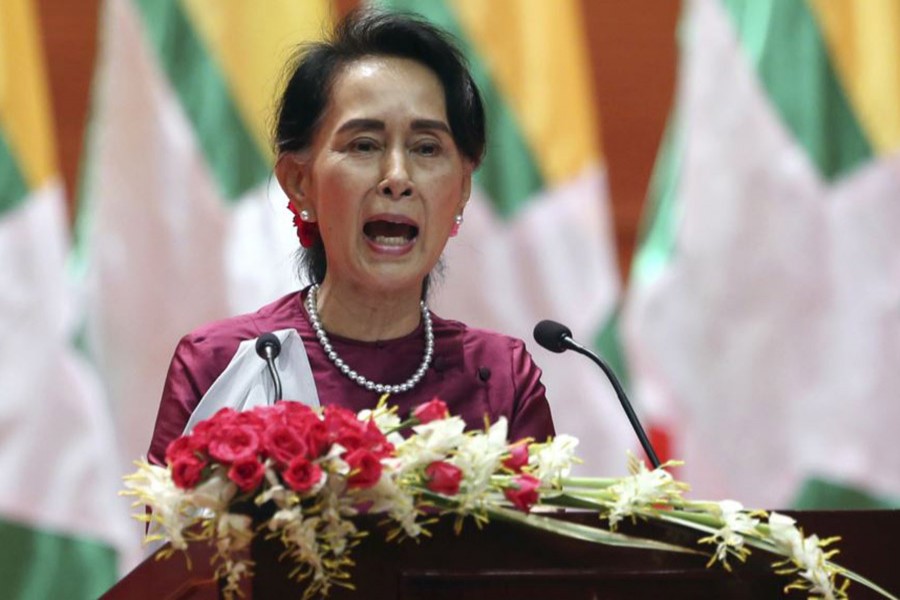Myanmar's de facto leader Aung San Suu Kyi led her political party to a landslide victory three years ago, ending decades of military-backed rule and raising hopes for democracy. Today, the dominance of her ruling party — the National League for Democracy — is gradually eroding ahead of the country's next election in 2020, reports CNBC.
Suu Kyi, who is officially barred from the presidency but still rules as State Counselor through trusted proxies, has experienced a stunning fall from grace over her mishandling of minority and indigenous groups. Myanmar is dominated by Buddhist-majority Bamars who have long clashed with smaller factions such as the Kachin people, who are mostly Christian, and the Rohingya,a predominantly Muslim community.
Suu Kyi, a Nobel Peace Prize laureate, has been accused of turning a blind eye to the military's violent persecution against the Rohingya in the state of Rakhine that escalated in August 2017. The state's brutal crackdown has displaced thousands, triggering a mass exodus of Rohingya refugees to neighboring Bangladesh.
More citizens are realizing that Suu Kyi does not support Myanmar's various religious and ethnic minorities that are targeted by the ever-powerful military, experts said. Last year, widespread protests erupted after statues of Suu Kyi's father, General Aung San — widely considered a Bamar hero — were erected in states home to minorities.
The NLD's waning popularity among ethnic minorities, who make up roughly 30 percent of Myanmar's population, could hurt the governing party's performance in the next election. While many still anticipate an NLD victory in 2020, it will be one "with a much lesser margin of victory," said Hunter Marston, an independent Myanmar analyst based in Washington, DC.


